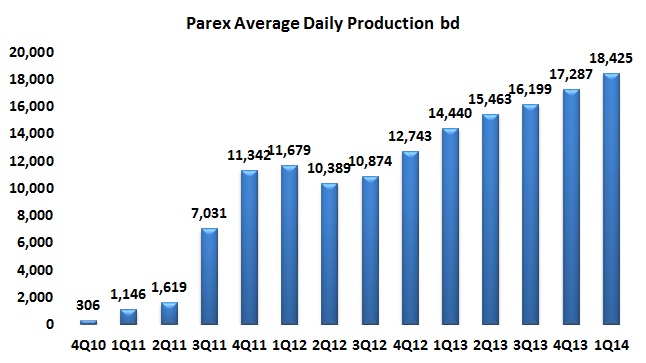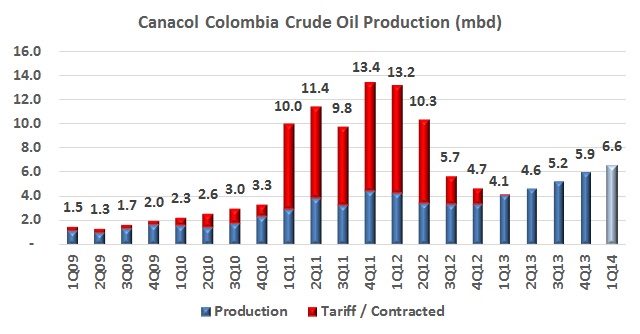
Fuel prices dropped in May as the Ministry of Mines and Energy adjusts its formula to set them, while the issue continues to gain traction on different fronts.
Accusations that oil production is destroying local water resources continued to make their way, while a number of oil industry institutions have embarked on campaigns to counter the idea, which is being used to advance the agenda of those opposed to oil. These and other environmental stories from local media.
In a joint session of economic commissions from both Colombia’s Senate and House, the Finance Minister Mauricio Cárdenas presented four new changes to the General Royalty System that look to give it access to other sources of funds in case royalties from mining and energy production taper off.
The president of the National Hydrocarbons Energy Industry Workers Union (Uten) Alejandro Ospina rejected reports that affiliated workers had joined a protest of Pacific Rubiales (TSX:PRE) in Bogotá and said there is an effort to stigmatize the industry.
The National Hydrocarbons Agency (ANH) and the Marine and Coastal Research Institute (INVEMAR) have launched the third voyage of a study of the marine life in the Guajira Offshore 3 (GUA OFF 3) block in the Colombian Caribbean.
The Minister of Mines and Energy Amylkar Acosta confirmed that at least three supermajor oil producers –ExxonMobil (NYSE:XOM), Petrobras (NYSE:PBR) and BG Group (LSE:BG.L)- will participate in the Colombia 2014 Round.

Parex Resources (TSX:PXT) says its production has grown to a historic level during the 1Q14 and announced the acquisition of Verano Energy, part of a plan to consolidate its operations in the Southern Llanos basin.

Canacol Energy (TSX:CNE) reported its fiscal year third quarter 2014 results which included operational and financial gains bright enough for the company to accelerate its investments in drilling programs for Colombia.
The Ministry of Mines and Energy sent its two highest ranking officials to discuss transportation infrastructure at a recent conference held by Ecopetrol (NYSE:EC) transportation spin off Cenit. They announced a new regulatory structure and looked to reaffirm MinMinas commitments to large, strategic infrastructure projects.
Ecopetrol’s (NYSE:EC) president Javier Gutiérrez attended an event in Neiva, Huila to showcase the advances that the NOC has made in the southern region of the country, highlighting production and the return for the local community.